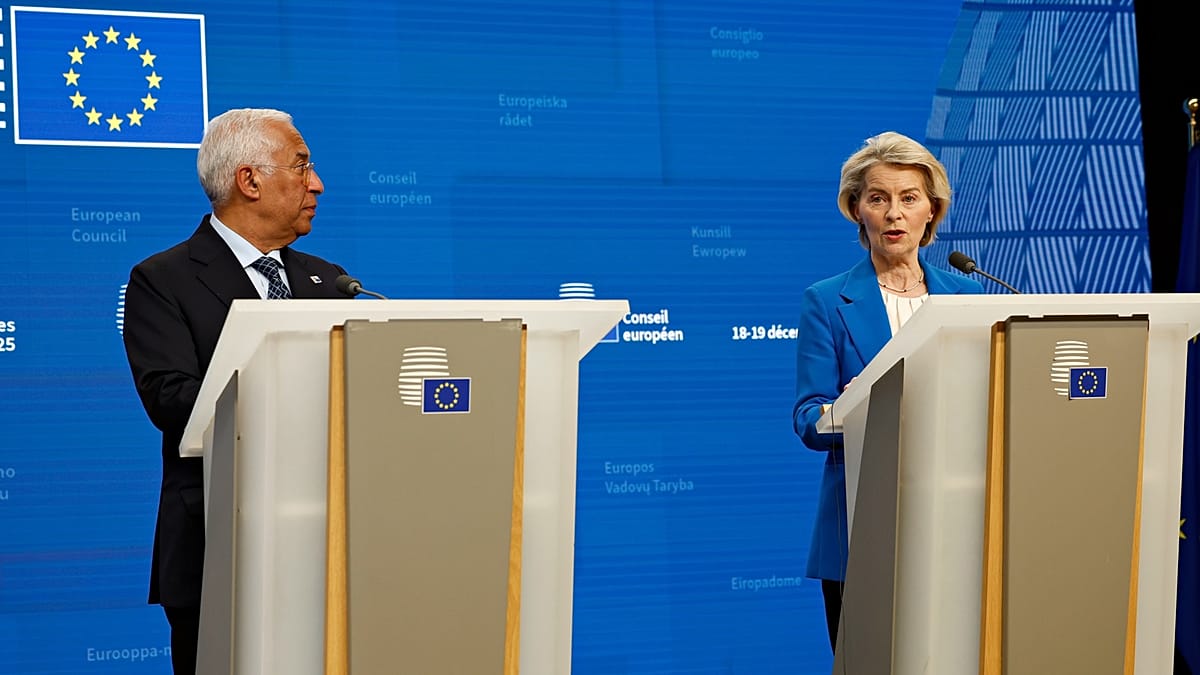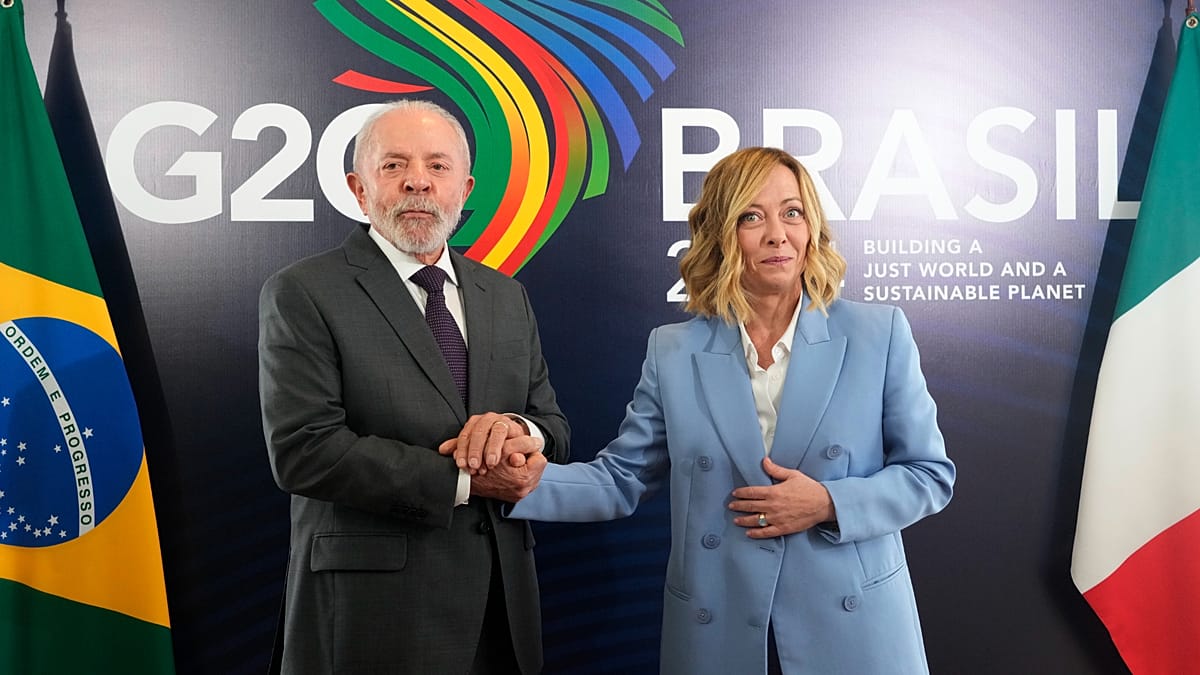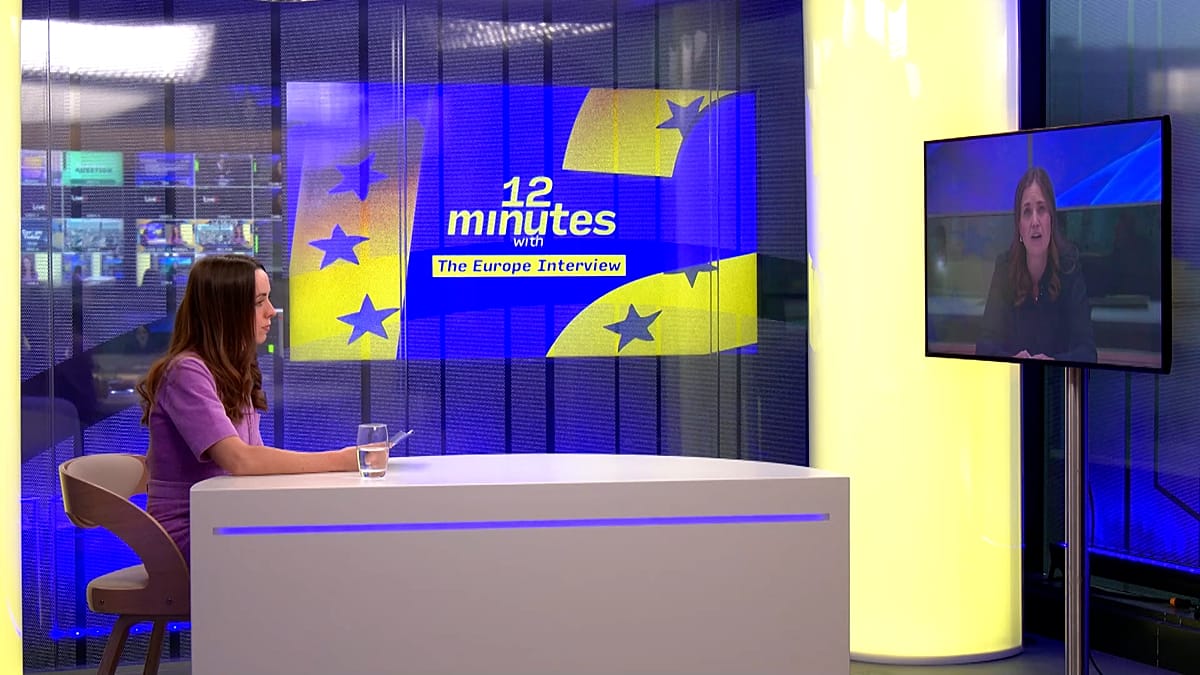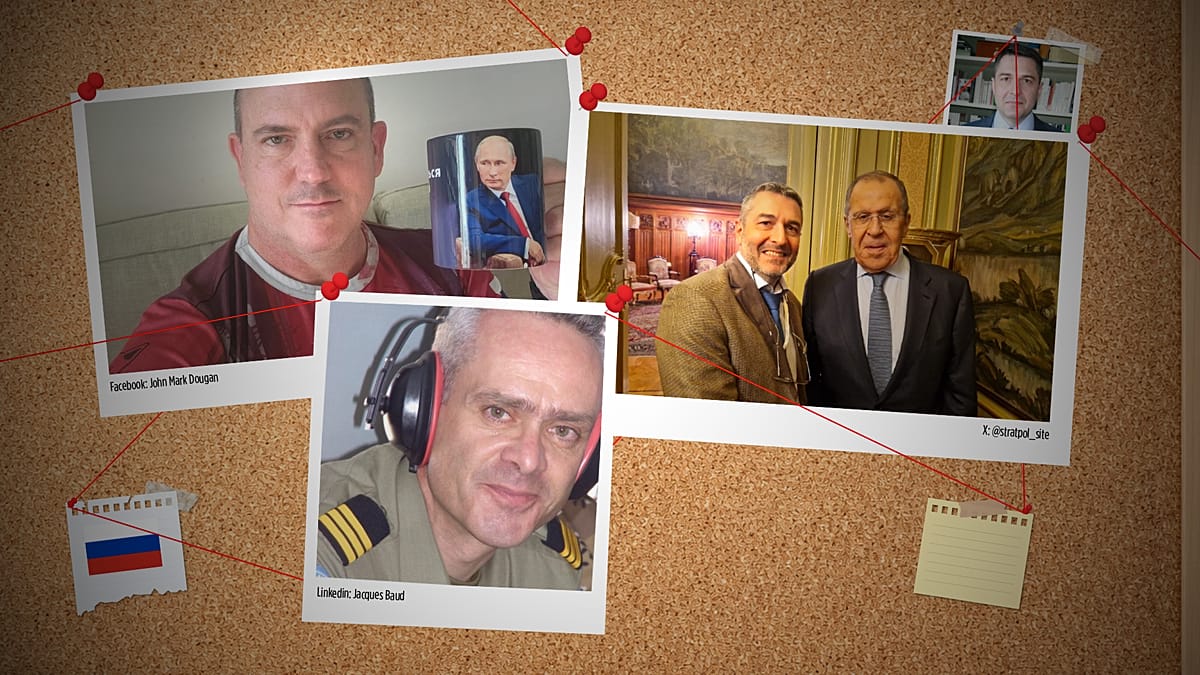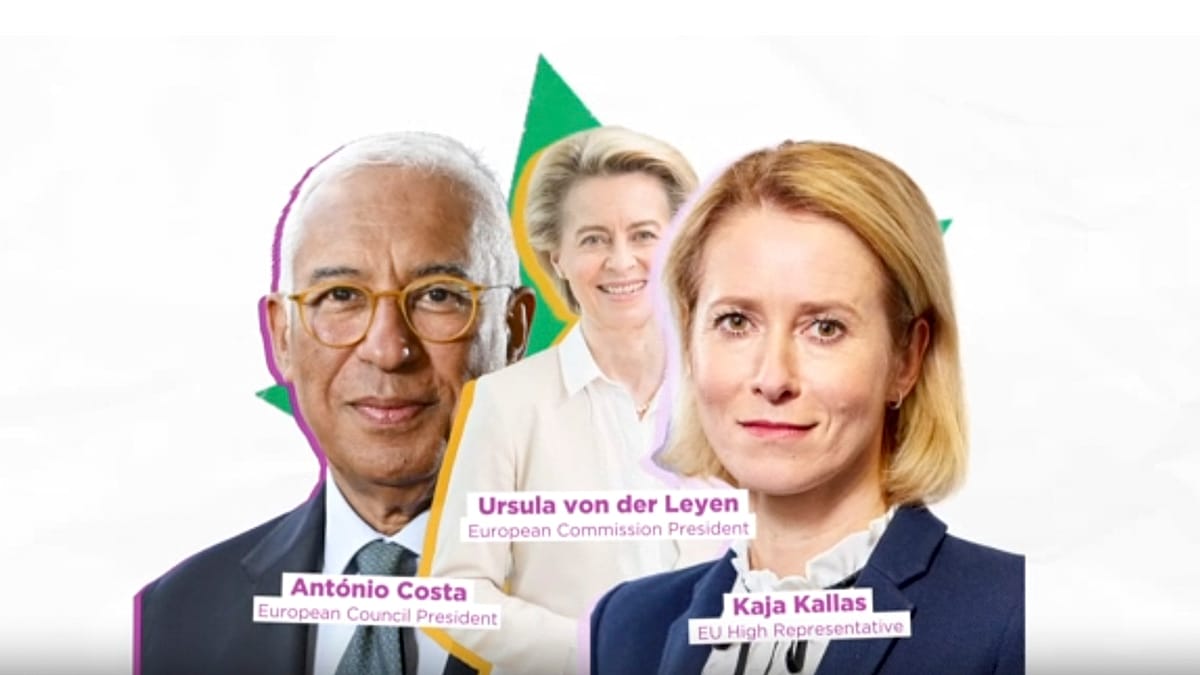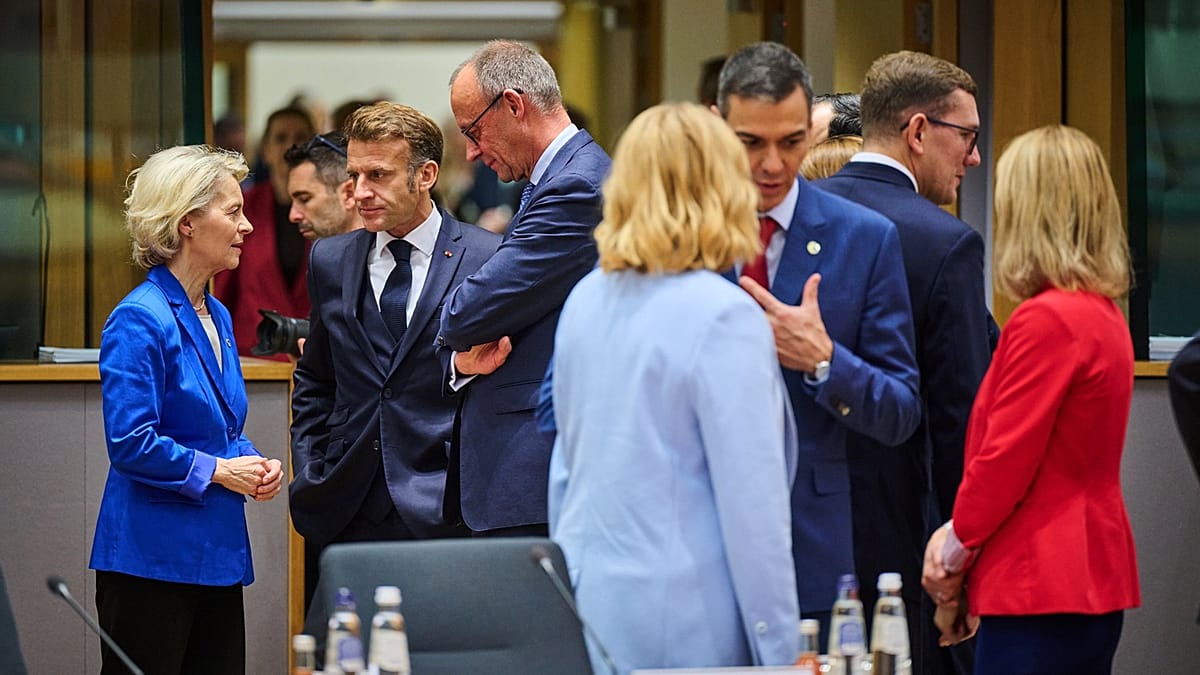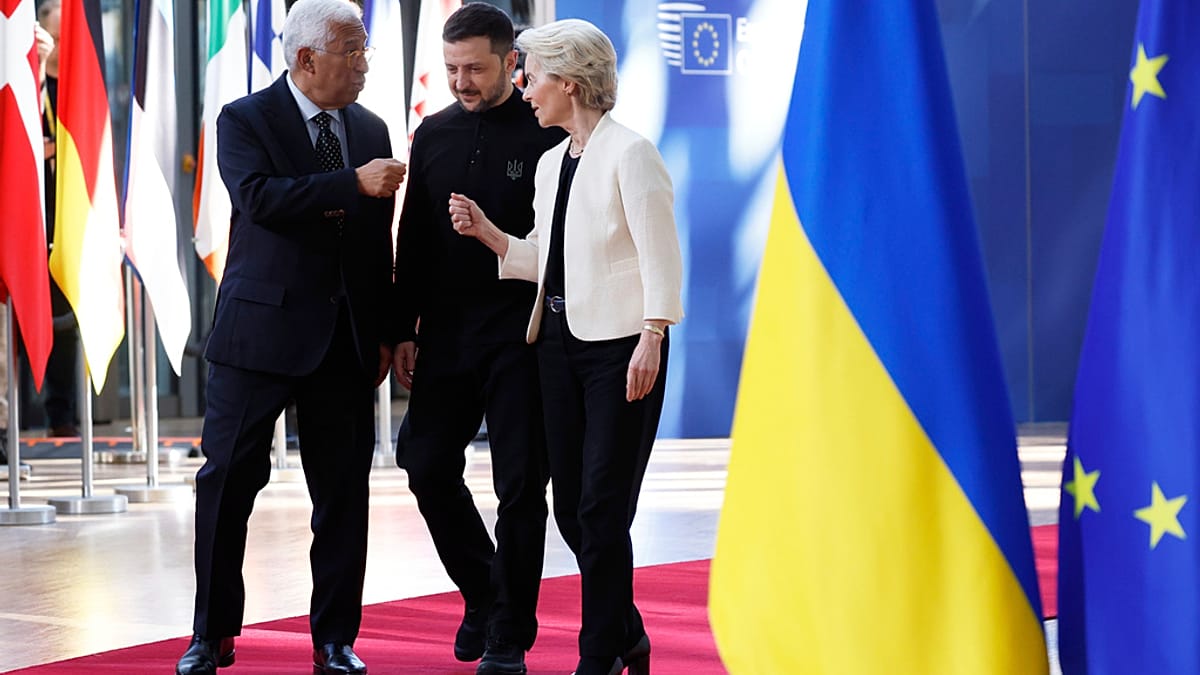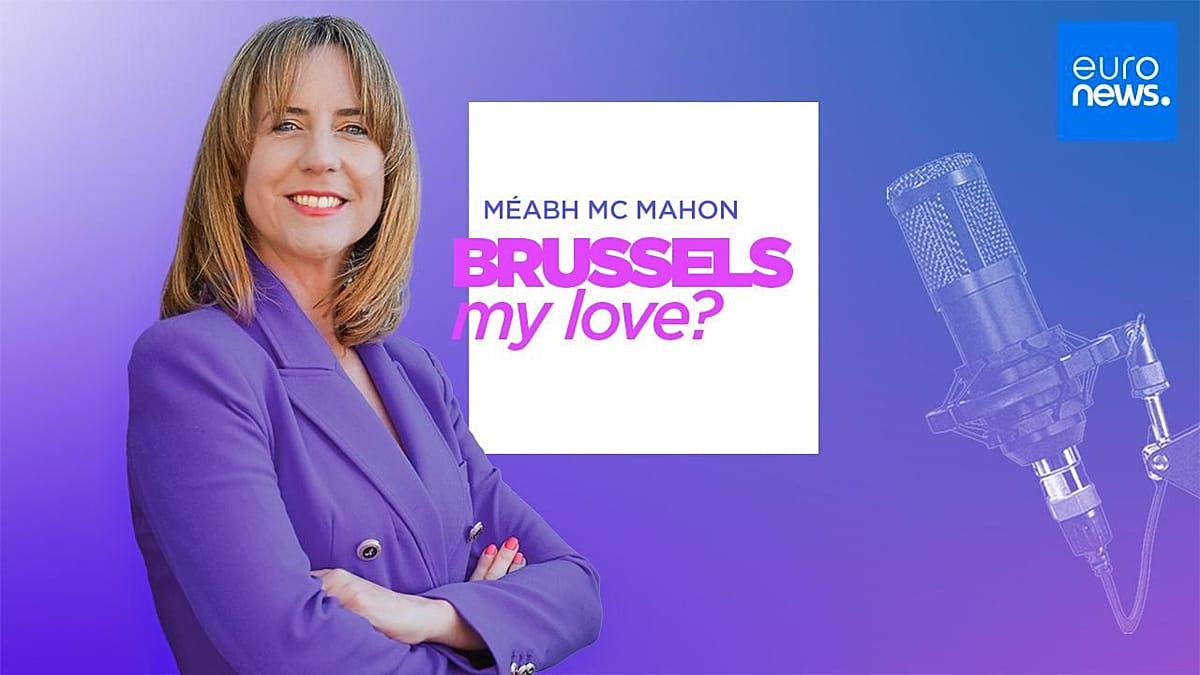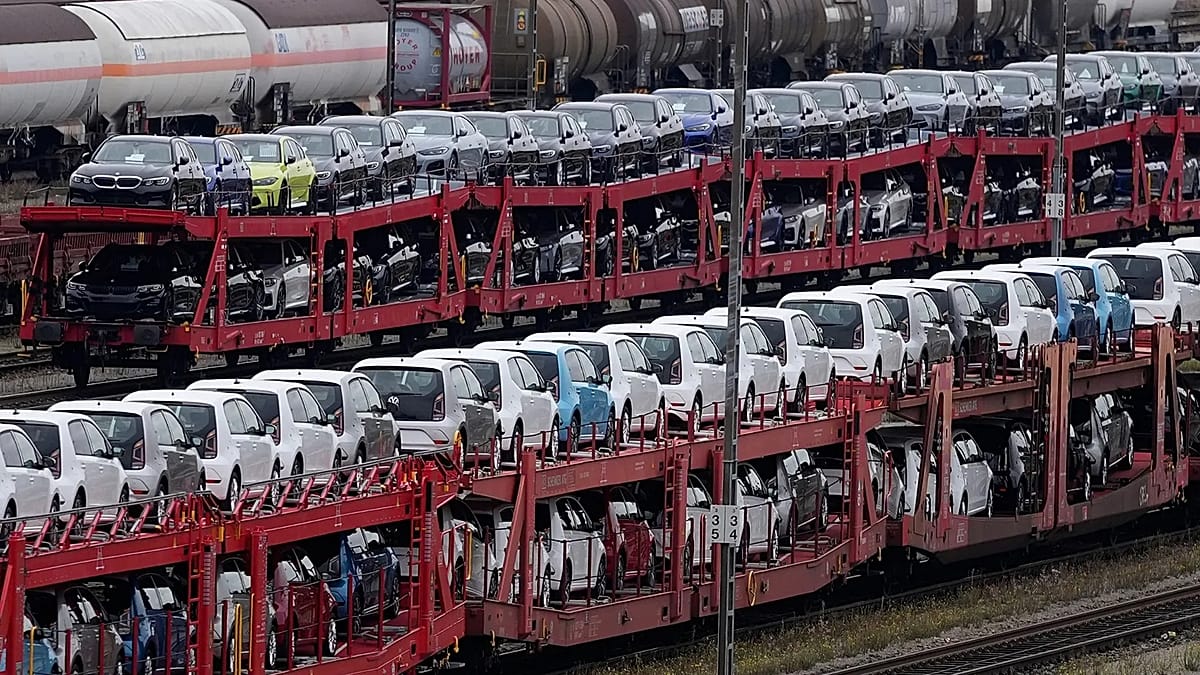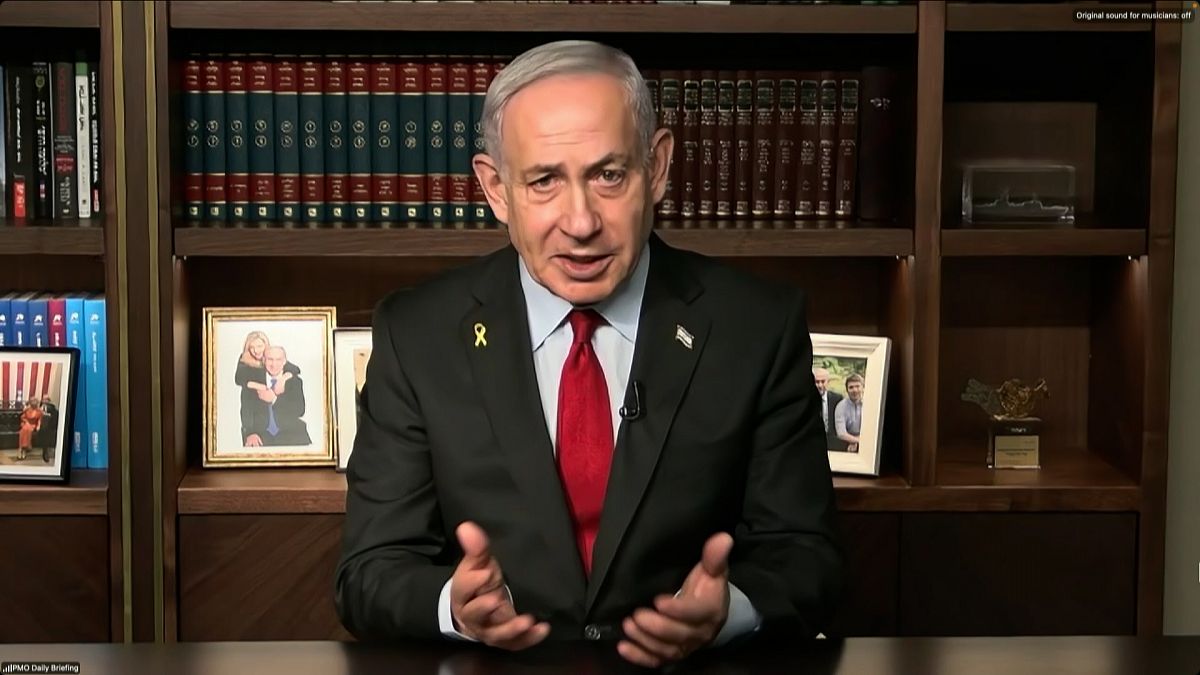
ADVERTISEMENT
“Hamas’ rule has to come to an end”, Israeli Prime Minister Benjamin Netanyahu told Euronews in an exclusive interview on Sunday, discussing the US-led ceasefire plan and the future of Israel and Gaza.
Netanyahu stated that if Hamas accepts the plan, it “could be the beginning of the end of the war.”
However, if it doesn’t, then “Israel will receive, as (US) President (Donald) Trump said, the full support of the United States to forcefully act against it to bring about an end to the war.”
“Let’s hope we can finish it the easy way and not the hard way.”
Read the Euronews in its entirety and watch it in the player above.
Euronews: The latest ceasefire deal with Hamas comes close to exactly two years since the Hamas attack on 7 October. We might see the hostages freed on the same day they were taken two years ago. Bringing the hostages back, can you say Israel achieved its main goal?
Israeli Prime Minister Benjamin Netanyahu: Well, we accepted the deal, as did the whole world. It was President (Donald) Trump’s plan. Hamas says that it accepted the plan. Now the onus is on Hamas. This plan consists of two parts. The first part is releasing all the hostages. Israel makes a tactical withdrawal, stays in Gaza.
And then the second part is meant to demilitarise Gaza and disarm Hamas, that will be negotiated. But the first part is there, it’s agreed upon. And that could be indeed the beginning of the end of the war. And as I said, since we accepted it, we have to see what Hamas will do. If Hamas does accept it, I think it’s a very good sign.
If Hamas doesn’t accept it and it’s the possibility that we always take into mind, then Israel will receive, as President Trump says, the full support of the United States to forcefully act against it to bring about an end to the war. I prefer, obviously, that we proceed with the plan as presented.
But time will tell, and it won’t take very long, in a few days we’ll know, if Hamas agrees to the release of all our hostages, we can move forward. That is complete phase one of the deal. That’s what we’re trying to do right now.
Euronews: Prime minister, what happens if Hamas does not release the hostages? What will Israel do? How will Israel change its stance and strategy?
Netanyahu:** Well, you have to realise that the reason Hamas agreed in the first place to this deal is because we acted militarily against their main stronghold, the city of Gaza. I gave an order several weeks ago to the army to enter that stronghold.
And as a result, Hamas became, I would say, a lot more flexible because they realised that their end is near. Add to that President Trump’s intervention and the plan that he put for ending the conflict by having the hostages released first. That, I think, sealed this situation in a positive way.
Now, of course, I can’t tell you if Hamas will agree to it. I think that it’s possible, I hope it will happen, but I can’t guarantee that it will. And so if it doesn’t happen, what President Trump has said is that he will back Israel completely in acting forcefully against Hamas. Well, let’s hope that we can finish it the easy way and not the hard way.
Euronews: Tthe world is watching closely as the latest deal with Hamas unfolds. After all the suffering, what’s next for Gaza from your point of view? What is your message to the Palestinian civilians and to Hamas at this stage?
Netanyahu: I think everybody understands that Hamas’ rule has to come to an end. All our hostages have to be released, and of course Hamas cannot come back to running Gaza, tormenting its people with its terror regime, and terrorising Israel with rockets and missiles and hostage-taking.
So that has to end. Once that ends, I think what we need is a system of division of responsibility. Israel will have overall security responsibility to prevent a terrorist resurgence from Gaza.
But in Gaza we need a civilian administration that is administered not by people who are committed to Israel’s destruction, but those who are committed to living peacefully with it.
President Trump has undertaken himself to head that civilian authority, to head the governing board of that civilian of authority, and I think that’s a good development. So if we have that, I think we can have a different future for Gaza and for Israel, and for everyone in the region. That’s what we hope will take place. But the first step is release all the hostages, and then disarm Hamas and demilitarise Gaza.
Euronews: Is that a good deal for Gaza, or is that the only deal for Gaza?
Netanyahu:** Well, I think right now it’s the only deal on the table, there’s no other deal, number one. Number two, I think it’s very good for Gaza. And the Gazans are hoping that Hamas will, they want to free Gaza.
They want to free Gaza from Hamas, from Hamas tyranny. Hamas shoots anybody, anybody on the Palestinian side who wants to dissent from Hamas’s war of terror in Israel, who wants to dissent from Hamas taking all the money, the billions that were put into Gaza.
The Gazans didn’t see any benefit from that. They just built an underground city, a terror tunnel city, and so they want a different future. And Gazans are now fighting Hamas. They’re actually fighting Hamas because they see now a hope to get rid of Hamas, so is that something that can happen? I think it could.
And I think, it’s not only that within Gaza people are hoping that they can remove this Hamas terror dictatorship that has subjugated them for so long, it’s that everybody in the world agreed to a new deal for Gaza, return of all our hostages, the disarming of Hamas, the demilitarising of Gaza.
Basically, the whole world has now accepted this plan. We have, most of the Arab countries have, the Arab states, as I said, have, Europe too. And of course, the United States, which has led this by President Trump. So that’s a very good thing. And I think we should pursue it.
Euronews: Prime minister, do you believe this deal would finally lead to a lasting peace rather than a merely temporary pause, especially given, as you said, that Hamas only partially accepted the plan?
Netanyahu:** Well, it can’t partially accept it. It has to accept it in full, and especially the first part that has to get under way. That’s what moves everything towards a resolution of the conflict. If they do, if we actually set up a civilian administration in Gaza that doesn’t educate its children to hate Israel, to try to destroy Israel, to kill Jews everywhere.
In other words, to de-radicalise Gaza, not only to demilitarise it. Not only to disarm Hamas, but to de-radicalise Gaza, as was done in Germany after World War II or in Japan. Then yes, then I think the whole region can have a much more positive and peaceful future.
And by the way, I think that if that happens, I think we’ll have many more peace deals of the kind that I broke, that I had done with President Trump and Arab leaders in the Abraham Accords.
We can expand the Abraham Peace Accords to include other countries in the Middle East and Muslim countries beyond the Middle East. So the future is bright, but the first stage is Hamas has to get on the programme. They have to release all our hostages and do so immediately.
Euronews: Well, the plan is seen as a short-term solution by many regional actors, and the Arab countries may not follow suit, unless, as they say, they see a long-term solution for Palestine. How do you plan to get them on board from your side?
Netanyahu: I think many of them are afraid of the Palestinian terror state. Many of them privately tell us how they want to see Hamas eliminated from the scene. I think we can get to a solution that protects Israel’s security and also gives the Palestinians the ability to govern themselves, but not to threaten Israel.
That means necessarily that some sovereign powers will remain in Israel’s hands, especially the sovereign power of security, because we’ve seen time and again that when Israel moves out, gives the Palestinians a territory which they govern with no limitations, then immediately Iran comes in, they set up a terror state, they attack Israel, as they did in the horrific massacre of 7 October.
That cannot be, that’s not a path to peace. If you want a real path to peace, then the Palestinians have to come finally to recognise and accept the existence of a Jewish state in their midst. And that hasn’t happened.
That’s why we don’t have peace here. Because they refuse to, they don’t want a state next to Israel, they want a State instead of Israel. And once they get any territory, they use to attack us again and again.
If we don’t change that, then this conflict will continue. If we do, we are able, with the plan that we have for the day after Hamas and Gaza, if we are able to change that, that goes a long way to securing a long-term peace and a stable peace in the Middle East.
Euronews: Some of the critics voiced exactly this concern, as you say, regarding what comes the day after.
Netanyahu:** And I said, what comes the day after is a deradicalised Gaza, a demilitarised Gaza and a disarmed Gaza, in the sense that Hamas will no longer run the show.
And the people who will run the show in Gaza, and those are not Israelis, they have to be those Palestinians supported by others who want peace with Israel and not the destruction of Israel.
And once we get to that point, I think we can advance peace not only between Israel and Gaza, but between Israel and many other partners in the Middle East and Muslim countries beyond the Middle East.
Euronews: Prime minister, would this plan and this outcome be possible without Donald Trump’s mediation, given that Europe has been visibly absent from this process?
Netanyahu:** Europe has been absent because Europe has basically caved in to Palestinian terrorism, to radical Islamist minorities in their midst. And they basically said “let’s just give them a Palestinian state, which would be the ultimate reward for Hamas after doing the greatest massacre against the Jews since the Holocaust”.
“Now we’ll give you a state in which you can continue the war against Israel”. That’s why Europe has essentially become irrelevant and displayed enormous weakness. If you want to fight terror, stand up and fight terror. Stand up and be forceful against terrorism. Don’t capitulate to its demands.
Don’t feed the crocodile in (Winston) Churchill’s words, because it’s gonna come after you after it devours Israel or any other country that stands in its way. That’s the first thing not to do.
What should be done is exactly what President Trump is doing. He’s presenting a realistic peace plan, a realistic plan that eliminates the terrorist elements, the elements that want to continue the war again and again, who vow to repeat the massacre of October 7th again and then again.
Remove them, replace them with a peaceful administration and then we can move on with peace. But that requires first releasing all the hostages and eliminating Hamas as a military and governing element in Gaza.
Euronews: Several EU countries have recently recognised the state of Palestine. How does this affect or how will it affect Israel’s relations with Europe? How would you explain to Europeans the goals of your government in Gaza?
Netanyahu:** Well, I think it caused enormous damage for us here in the Middle East because it’s the ultimate prize for terror.
You attack Jews in, as I said, the worst attack since the Holocaust, and you’re given a state because that’s who is gonna run that state. And remember, the Palestinians had a state in Gaza, a de facto state, which turned out to be the greatest terrorist attack in history since 9/11.
Imagine that after 9/11, people would say, okay, now let’s give (Osama) Bin Laden and Al-Qaeda a state. Not only will we give them a state, but it’ll be one mile from New York, which is what they’re suggesting.
After this 7 October massacre against Israel, we’ll give the Palestinians a state one mile or a few miles from Tel Aviv. That’s not gonna promote peace, but that’s effectively what the European leaders, those European leaders who suggested a Palestinian state, are saying.
We’re gonna stop terrorism by giving the terrorists a state right next to their intended victim, whom they almost massacred, whom they’re almost eliminated. That doesn’t bring peace. I think that the more responsible approach taken by the United States and by President Trump is the way to improve peace. How did we get the Abraham Accords?
For 50 years, for 25 years, a quarter of a century, we couldn’t expand the peace with our Arab neighbours. Everybody said you have to give the Palestinians a state. And that state, obviously, was committed to our elimination, so that wouldn’t move it very far. In fact, it would move the needle backwards.
In came President Trump and I, and we worked together, and we went around the Palestinian state. We went to Abu Dhabi, we went to the Emirates, we went to Bahrain, we went to Morocco, we went to Sudan, and we brokered a direct peace between them, a peace based on mutual respect, a peace based on strength.
First you have the strength, then you have peace. Now, what these European leaders are saying is that we should weaken Israel to the point where it’s fighting for its survival against another Palestinian state, this time right at the outskirts of Jerusalem, in fact, within Jerusalem, and right above the hills above Tel Aviv.
Let’s give them a state, and that’s going to bring peace. That’s absurd. So Europe is lost. Those European leaders, unfortunately, caved in to the terror of Hamas. And I think that’s the wrong way to go.
I hope they rethink their way, because we’d prefer to have not only good relations with Europe, but good relations with a realistic Europe, and one that would bring real peace, as opposed to the repetition of horrible war.
Euronews: Are you willing to negotiate with the European members to convince them to do that?
Netanyahu:** Well, I’m in constant touch with them. I can say that some of them have been more respectful of our positions than others. Others, basically, they’re under tremendous pressure.
The media has very stilted it, very tilted against Israel. It just accepts Hamas propaganda, hook, line and sinker, whatever numbers they give, whatever facts they give that are exactly the opposite of the truth, they’ve accepted.
Then they have also these demonstrations from day one, from day of the massacre, when women were raped, and men were beheaded, and babies were burned by these Hamas monsters; there were mass demonstrations on the streets of Europe’s capitals on behalf of Hamas, on behalf of Hamas.
And with this combined pressure of distorted media, and internal Islamist pressure supporting Hamas quite a few of them caved in, and that’s not good.
I think it’s not good for Europe. I think that it’s very bad for Europe, because it encourages additional extremism and fanaticism, which will bring down Europe eventually.
And I don’t think it is good for peace. So I hope that Europe changes its direction. Some of it has, but some of it hasn’t. I hope the part that hasn’t rethinks not only for our sake, but for Europe’s sake too.
Euronews: Prime Minister, the Hamas attack on 7 October marked a turning point in the conflict, the tragic loss of life, and the ongoing suffering. I want to ask you, how do you reflect on the impact of it today? What lessons from that day continue to shape Israel’s policies? And in this specific moment, with the release of hostages being imminent, and after all the immense suffering on both sides, has justice been served in your view?
Netanyahu:** I think the first question is, can we remove a threat to perform another Holocaust on the Jewish people? And the answer is, I think we have. It’s come at a great cost to us, because we’ve lost some of our finest sons and daughters who bravely fight this war.
I think we’ve done something else. It’s not only been a war against Hamas terrorists, but it’s also been a wall against the Iranian terror axis.
Remember that in these two years of conflict, we also went after Hezbollah, which threatened to rain down 150,000 rockets and missiles on our heads. And they did quite a bit of that. And we basically brought them to their knees, Hezbollah.
We brought down by our action the murderous Assad regime that had murdered half a million of its own population and served as a main axis for the Iranian terror bridge to the Mediterranean.
We took out the most dangerous weapons directed against us and brought back, rolled back the Iranian atomic threat to annihilate Israel. It’s a tremendous achievement. And it not only threatened us, it threatened every one of our Arab neighbours.
It threatened Europe, because they were building intercontinental ballistic missiles that could carry atomic warheads to Italy, to France, to Germany, to Britain. It’s huge.
Service that we did, as (German) Chancellor (Friedrich) Merz said, Israel did the work for all of us. That was an important acknowledgement of what we were doing.
And then, of course, we also have to deal with the Houthis that are blocking another Iranian proxy at the mouth of the Red Sea, which is blocking maritime trade and is also raining down missiles on us, including last night.
So we have a whole Iran terror axis which we have rolled back, not only for our own security, but for the future of the world. And that terror axis is what has funded Hamas, funded Hezbollah, funded the Houthis, kept alive all these fanatic forces that are not only against Israel, they chant death to America, death to Israel, and by the way, death to Europe in between.
And I think it’s important for the Europeans to understand what Chancellor Mertz said in a broader context. We are actually fighting the barbarians who want to destroy our free societies.
They want to destroy you. And we are standing at the front lines while we are being attacked from people in Europe whom we are protecting. It’s quite amazing. So obviously, there has to be a change, I think, in the understanding of what battle is being fought here.
It’s not merely against the Hamas terrorists who hide behind civilians, who use their civilians as human shields, who shoot the civilians, who want to get out of harm’s way when we tell them to leave the area, the zone of combat. It’s not only against these monstrous terrorists, it’s against the whole monstrous terror axis that Hamas has built, not only to destroy Israel, conquer the Middle East, but to attack you. And that is what Israel is fighting.
Few Europeans perhaps understand it, but it doesn’t make it less true. It’s just when, as Churchill warned the world, that was celebrating the Munich Agreement, celebrating the giving (German Nazi leader Adolf) Hitler control, basically, of a part of Czechoslovakia.
Everybody said, it’s peace in our time. And he said, no, it is not, it’s not. This will bring a war, the likes of which we haven’t seen. And people condemn them as a warmonger, just as they are condemning Israel, just as they’re condemning me. But in fact, we are fighting the battle of the free world.
We are fighting a battle to prevent the barbarians from storming into Europe, first from conquering all the Middle East, storming into Europe. And then attacking the United States. Now, whether or not people see it, it’s true.
And I’m very proud of our soldiers, who in defending ourselves so courageously, are also defending all of free civilisation.

